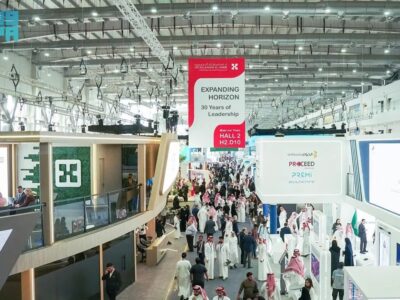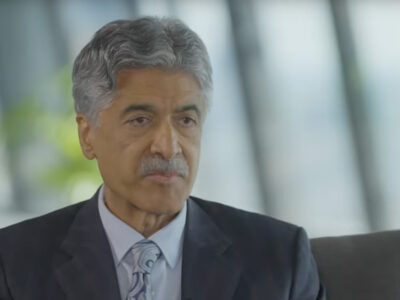Fertility clinics in Dubai register a whopping 20-fold increase in women requesting egg freezing procedures compared to 2021, doctors told Arabian Business.
“Egg freezing has become increasingly popular worldwide, including the UAE over recent years,” said Luciano Nardo, CEO and founder of NOW-fertility.
“More and more women are asking to cryopreserve their eggs in a modern, career driven and financially stable environment. This is the result of a trend towards fertility preservation as well as an empowered female society, technological advancements and favourable changes in the legislation.
Legal reforms in 2021 now permit the freezing of human embryos and eggs in the UAE. Since then, many have chosen to do so for various reasons, but the prevailing sentiment suggests that most women are choosing to prioritise their careers and pursue higher education.
The law stipulates that human embryos can be frozen for up to five years – extendable with the consent of relevant parties – and that single women can freeze their eggs provided they are used for their own pregnancy after marriage with their husband’s sperm in an IVF procedure. However, surrogacy as well as egg and sperm donations remain illegal in the UAE.
“We see a clear trend towards egg freezing and fertility preservation in the last 1-2 years,” said Medical Director at the Orchid IVF clinic in Dubai, Dr. Dimitrios Kafetzis.
Just a decade ago, this technology and scientific knowledge were not available, he explained. Eggs were frozen using a different method, which was not as effective, resulting in many women losing their eggs upon defrosting. While that is still the case, it is to a smaller extent, with 10-20 percent lost during thawing.
“All women, if they are single, and over 28 years of age, should see a fertility consultant and measure their ovarian reserve hormone (AMH). The results of this hormone, along with a scan of the ovaries, will give an accurate picture and will help us [know whether to] proceed or not,” Kafetzis added.
According to Torkia Mahloul, COO of Ovasave, there has also been a surge in egg freezing procedures globally.
“While there are no publicly available national statistics, we have observed a significant increase in women showing interest in their fertility and opting to freeze their eggs in the UAE. This trend aligns with the global pattern seen in markets like the US and Europe, where egg freezing procedures have been growing at a rate of more than 25 percent annually,” Mahloul said.
“There has been a notable shift in mentality, with prominent women and influencers in the UAE openly sharing their egg freezing journeys on social media platforms. The response to these stories has been overwhelmingly positive, indicating a growing acceptance and understanding of egg freezing as a recommended solution for women who are considering having a child after the age of 35.”
More young women are focusing on higher education, building their careers, and taking the time to explore their personal aspirations such as travelling or finding the right partner to settle down with, Mahloul explained, suggesting that they freeze their eggs at a younger age so they can take control of their reproductive future and alleviate the stress associated with “the ticking biological clock.”
“Another exciting development is that egg freezing is becoming less of a taboo topic. Women are embracing the idea, openly discussing it, and feeling proud of taking charge of their fertility. This positive shift in mentality is empowering, fueling curiosity about their own reproductive health and inspiring action, such as opting for egg freezing.”

‘Wish I did it sooner’
Communications Advisor and UAE-based expat, Claire F., 39, told Arabian Business that she recently underwent egg freezing.
“I’ve always wanted children, but with more friends around me having already had their children or struggling to have them, I decided to get my egg reserves tested a few years ago,” said Claire.
“I was told at the time that I had the average number of eggs for my age and everything looked healthy. So I left it, thinking I had all the time in the world. A few years later, I started to think about freezing my eggs and went with a friend to her appointment to discuss her options. It was then, at 39, that I realised I didn’t have all the time in the world.
“As women, we are told we can have children later and later in life – I’ve had several friends who have conceived in their 40s. Whether we like it or not, women have a finite amount of eggs and once they are gone, they are gone. I don’t see many conversations around this and I think it’s critical that we do discuss it more openly and honestly.”
Claire underwent the process twice – first in the UK, then in the UAE. On her first trial in the UK, she did not interact with the doctor much and eventually only ended up with 4 follicles, 3 eggs frozen, leaving her “quite disappointed” with the results after enduring the entire process.
A few months later, she tried again in Dubai where she was given more face-time with the doctor, who was more attentive and always available to help her through the experience, making the process more personalised and resulting in 12 eggs.
“I really wish I had done it sooner. I think if I had, I would have only had to do it once rather than back to back.”

Egg freezing booms as fertility rates decline
Since this significant shift in women’s mindset, egg freezing is becoming more affordable, meaning that younger women can seriously consider it at an age where they can get optimal results, like a higher number of quality eggs.
In the UAE, the average cost of egg freezing typically ranges from $5,200 to $6,800.
Ovasave has witnessed a notable increase in the number of egg freezing cycles performed in the UAE. In 2022, around 500 to 600 egg cycles were conducted. Though a seemingly modest figure, it represents a “substantial rise” when compared to 2020.
This comes as the UAE grapples with a concerning increase in infertility rates. The Middle East region, as a whole, is estimated to have an infertility rate of around 15 percent – almost equally split between men and women. This is a relatively high number when compared to the rest of the world, which is at 10 percent.








